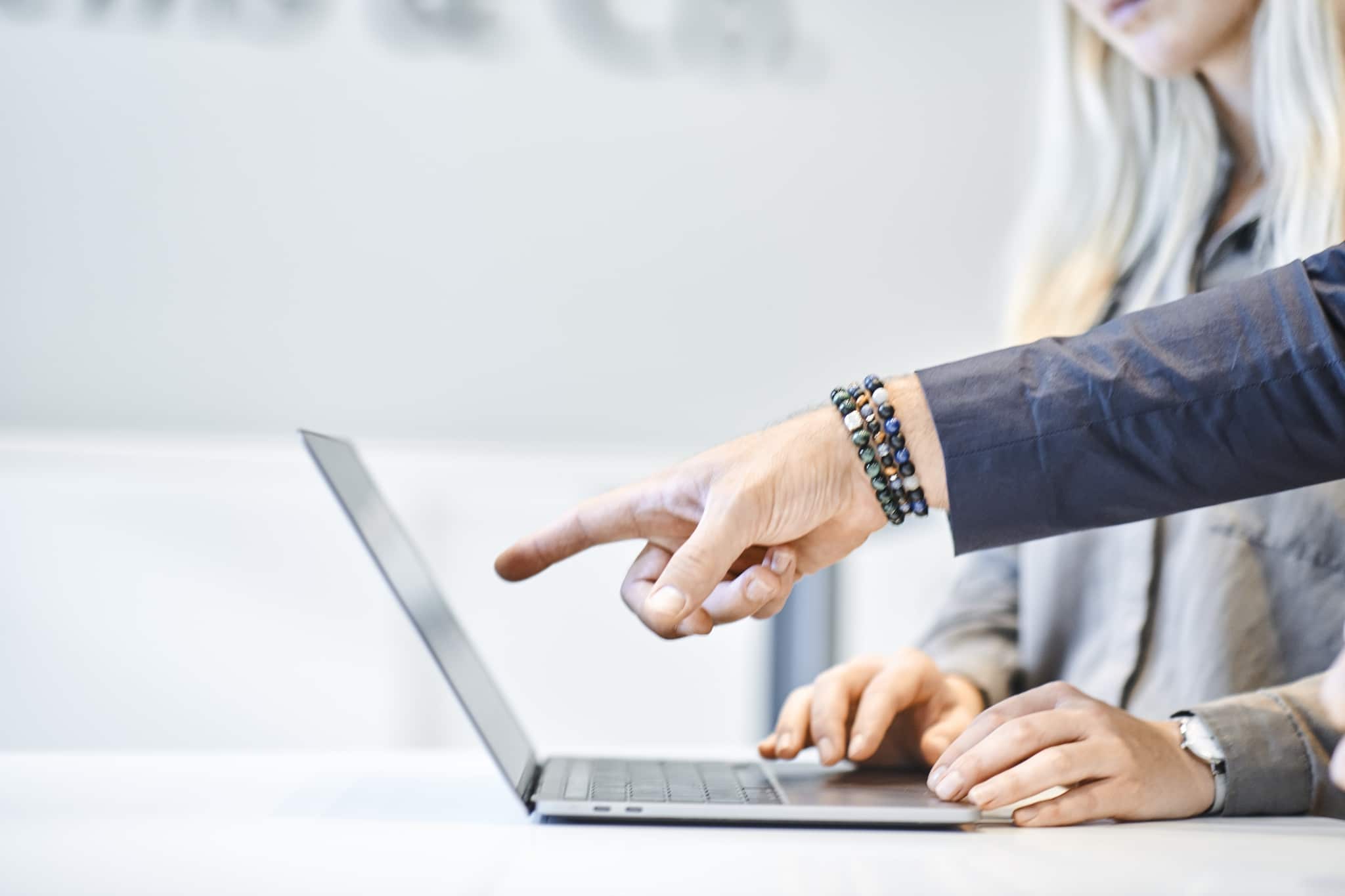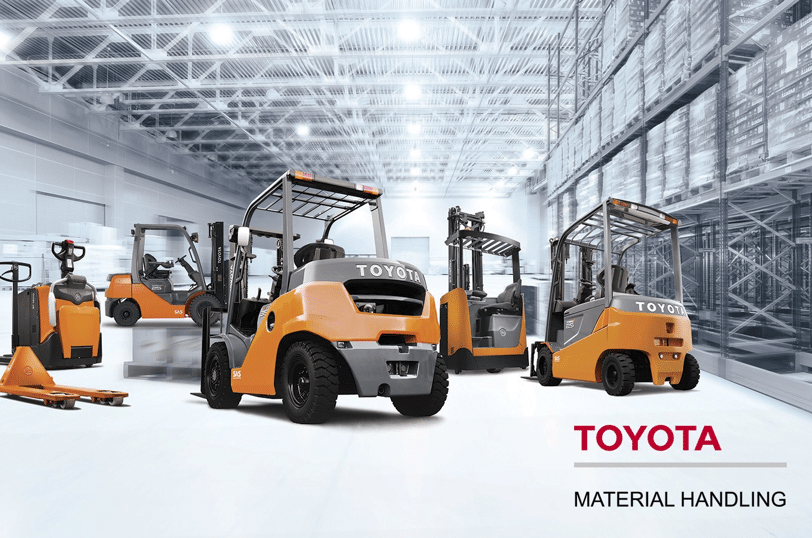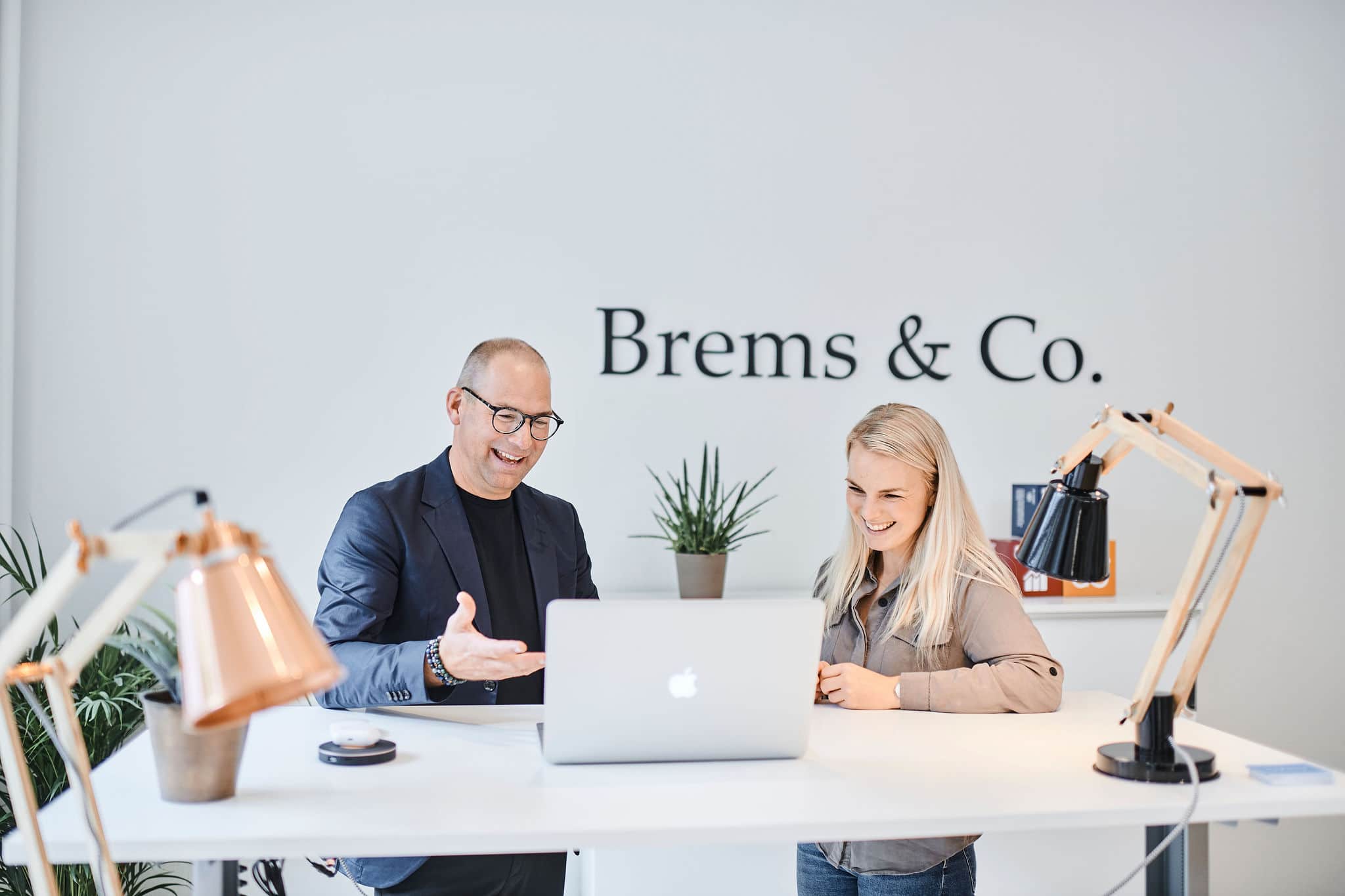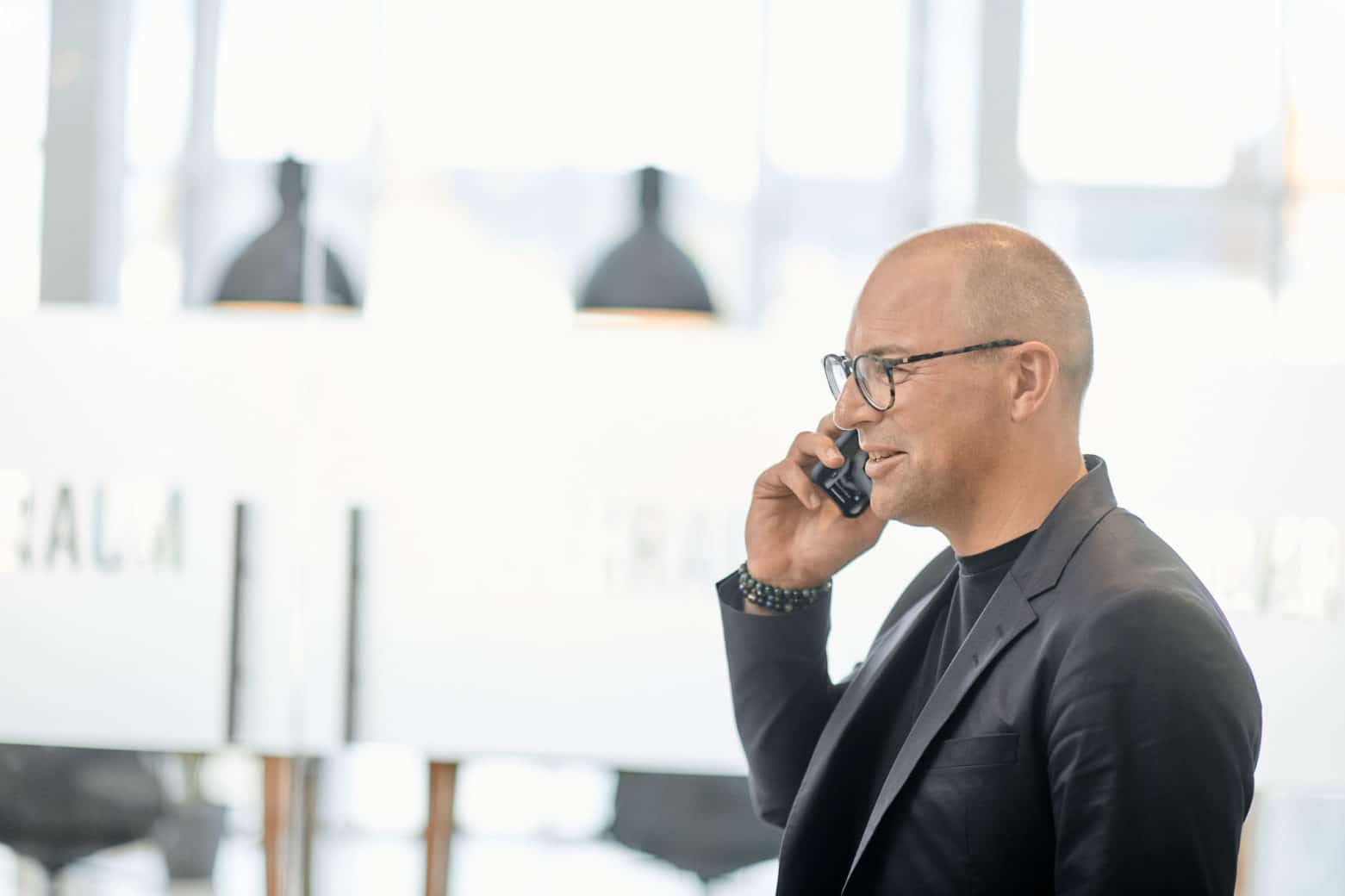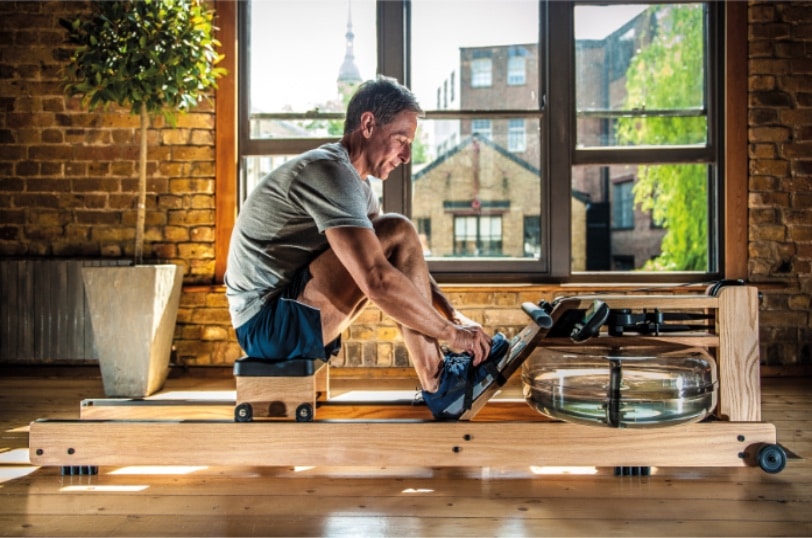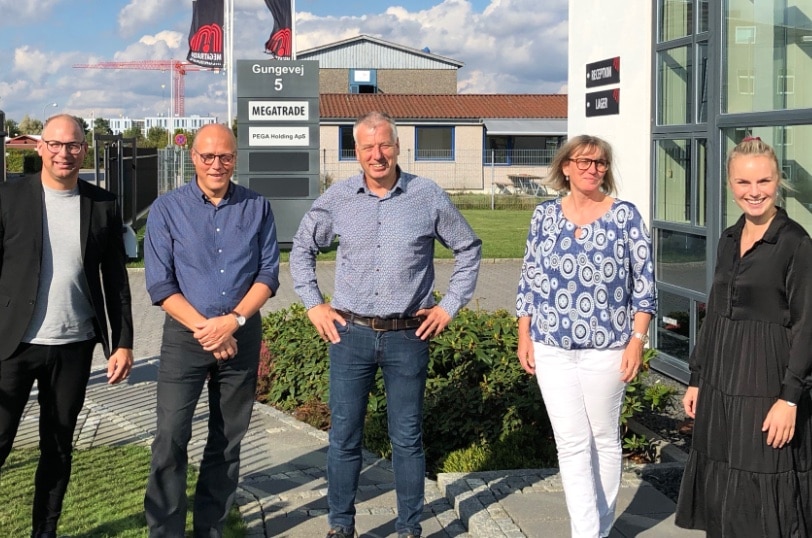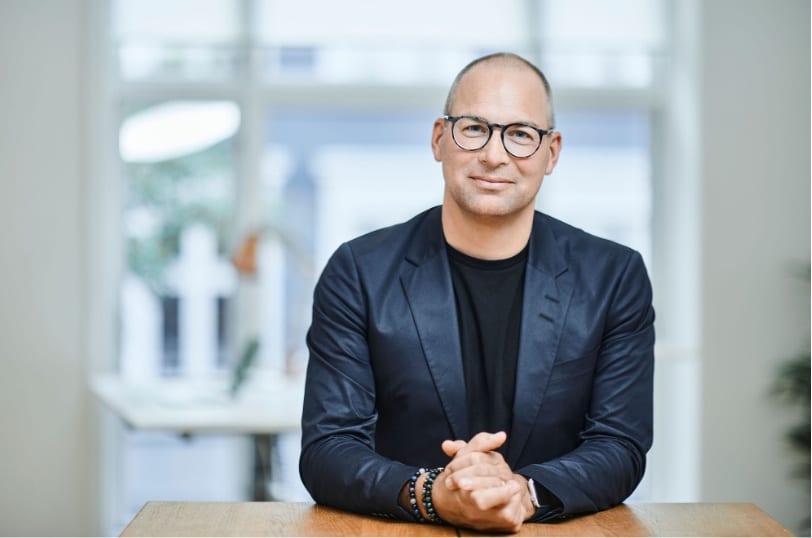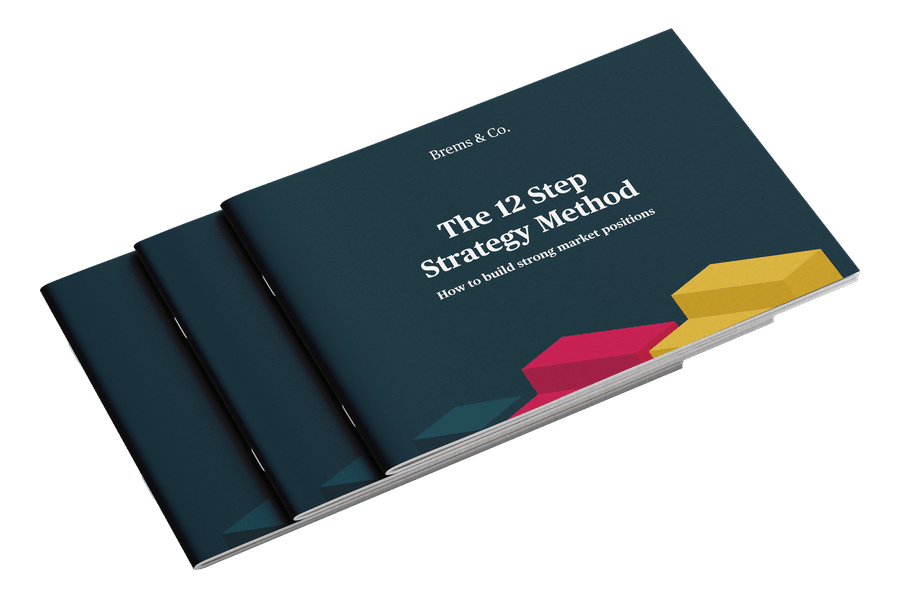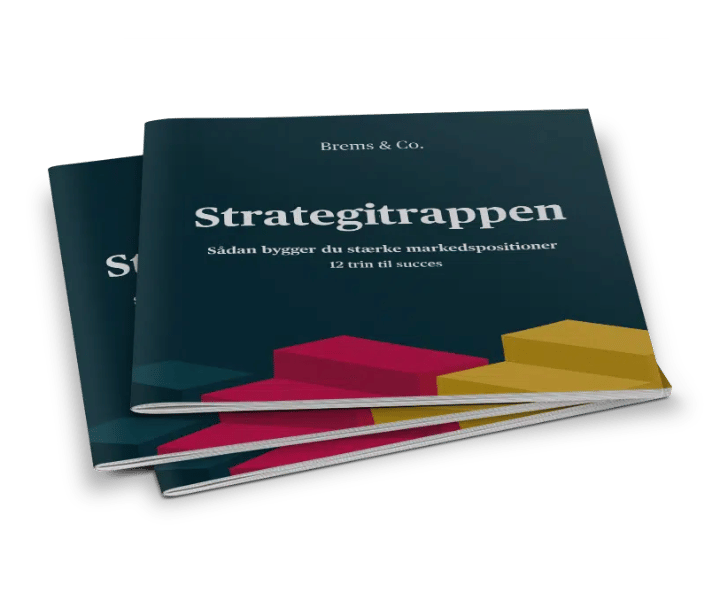Sustainability has to be the core of COVID-19 recovery
Temperature swings, irresponsible production and economic downturn. Sustainability has been on the agenda for years, but things have changed during the pandemic. Even though novel coronavirus has, to put it mildly, disturbed trade and industry, it has made more and more companies realize that the climate crisis and lack of social responsibility can be far more damaging for the world and their bottom line than the pandemic.
Climate change can contribute to pandemics
Even though we are in the midst of a global pandemic that has taken its toll on the economy and lead to social unrest, sustainability still needs to be a priority. Research has shown that climate change can contribute to pandemics by, for example, causing rises in temperature which then spreads infectious diseases like malaria and yellow fever. In the next 10 years, warmer temperatures will increase the risk of physical and economic threats, which means that it is now more important than ever to find out what climate change means to you as a company.
It is no longer a question of when your company should put sustainability on the agenda, but a question of how to do it. As a company, you have to, amongst other things, review your production, its effects on the environment and your products. You will increase your future resistance if you tackle climate change now.
“It is no longer a question of when your company should put sustainability on the agenda, but a question of how to do it.”
Sustainable transition is a necessity
Nowadays, new players in the market are born with a sustainability-gene. It can be a longer process at established companies, because they are used to doing things in a certain way, which can make it hard to readjust and use capital and time on rebuilding a more sustainable business.
However, the green transition is a necessity for companies, because while the pandemic has caused unreasonable losses and costs, it has also made us act and think differently. We have become better at buying locally, we have more time for those closest to us and we spend more time in nature. An increase in local production and sales has increased our awareness of the environment and more and more people are aware of their consumption. This increases the importance of a brand being sustainable and that brands commit themselves to sustainability – both now and in the future.
“more and more people are aware of their consumption. This increases the importance of a brand being sustainable and that brands commit themselves to sustainability - both now and in the future.”
Companies that do not have a clear or meaningful purpose will struggle to attract employees and customers, and a meaningful purpose is closely linked to sustainability.
In the foreseeable future, companies will have to be accountable for more than the product’s quality, availability and price, as a lot of consumers make demands on where, how and who produce the product and how recyclable it is.
Research has shown that consumers think companies bear the biggest reasonability in products being environmentally and socially responsible. A shift in the way companies think is therefore needed, in order for them to have a strong foothold in the market and survive long-term. Sustainability has to become part of the company’s DNA. It is not about doing something good for society – it is a commercial necessity.
Brave leadership as the engine
Sustainability is not only a relevant subject for consumers – it is also about the long-term vitality of companies. Currently, the whole world is working on preserving lives, living conditions and the economy. However, investing in the climate could not only help with the post-pandemic recovery, but also create meaningful jobs in the short term and increase the economic and environmental resilience in the long term.
Brave leadership is needed like never before to ensure that your company gets through the pandemic unscathed – and that is across all industries. As a leader, you have to lead the way and use your creativity, drive and influence to steer your brand and company in a sustainable direction. You need to have a comprehensive and complete understanding of how you contribute to climate change, since risks and threats like decreasing demand often become the focus instead of investments in innovation and CO2-reduction. Climate change has already had socioeconomic effects in some areas, and that affects our vitality, supply chains and natural capital since they depend on a stabile climate – which we do not have.
“As a leader, you have to lead the way and use your creativity, drive and influence to steer your brand and company in a sustainable direction.”
We have to deal with climate change now – together. You and your company need to lead the way. Sustainability is the core of COVID-19 recovery, because if we do something now, we will become more resilient in the future.
7 principles of COVID-19 recovery according to Martin Brems
1. Start by putting sustainability at the top of the agenda
2. Create a more meaningful purpose for your company
3. Get sustainability into the core of your company’s DNA
4. Review your product and its effect on the environment
5. Focus on recyclability
6. Focus on innovation and CO2-reduction
7. Leaders have to lead the way – lead by example
Read the column here (in Danish): https://erhvervplus.dk/artikel/bæredygtighed-skal-være-kernen-i-covid-19-helbredelsen
If you have questions or comments in relation to the column, please contact:
Martin Brems
Tlf: +45 60 25 75 72.
Mail: [email protected]
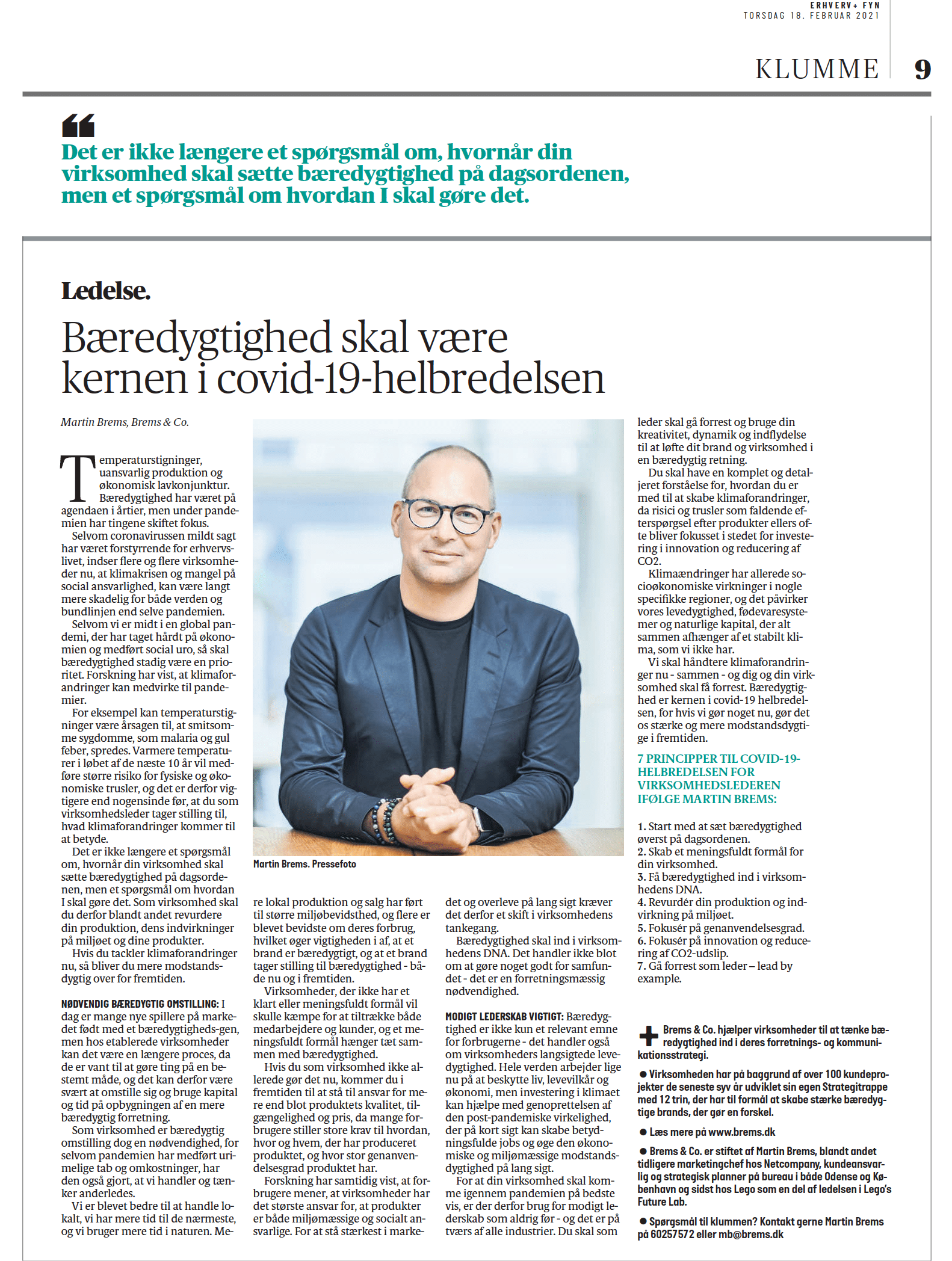
Read more...
New business models require a new marketing approach
Even though we are truly tired of talking about the Corona Virus and what it has caused – and causes – for our lives, we must admit that the world has changed almost overnight.…
Welcome to Toyota Material Handling as a new customer at Brems og Co.
Toyota Material Handling is number 1 in the world within forklifts. We have the pleasure of having to help with customer insight and initiatives for increased conversion and sales…
The 5-year plan is dead – what now?
You can’t develop your strategy as you usually do in 2021 - and Covid-19 is (unfortunately) a good example of why. Here are 5 suggestions of what you can do instead.
Brems & Co. gets full marks in customer survey
We have a Net Promoter Score of 100. Our customers gave us 4.9 out of 5 in output and project management and Martin Brems received personal and professional praise.
Sustainable marketing strategy for world-famous fitness brand
Most people who have seen the American Netflix series House Of Cards are also familiar with the beautiful handmade wooden rowing machine WaterRower from the company of the same…
Welcome to Megatrade as a new customer at Brems & Co.
For more than 40 years, Megatrade has offered individual customer-specific solutions and services to e.g. hinges and fittings, based on their customers' business. Brems & Co.…
Sports stars and directors throw themselves in the sand at beach volley
Olympic gold winner, bank director, and business owner. These are some of the titles of the members of a networking group that meets early in the morning to play beach volley.…
Brands need to be more human
If one good thing has come from the COVID-19 crisis, it would be that it has given us time and peace to reflect on what it means to be human and part of a family.
Brems & Co. is heading the launch of a new telecommunication company
Mobitel wanted to renew their branding, communication and brand awareness after 19 years of collaboration with TDC as TDC Erhvervscenter Odense – with the same products and…
